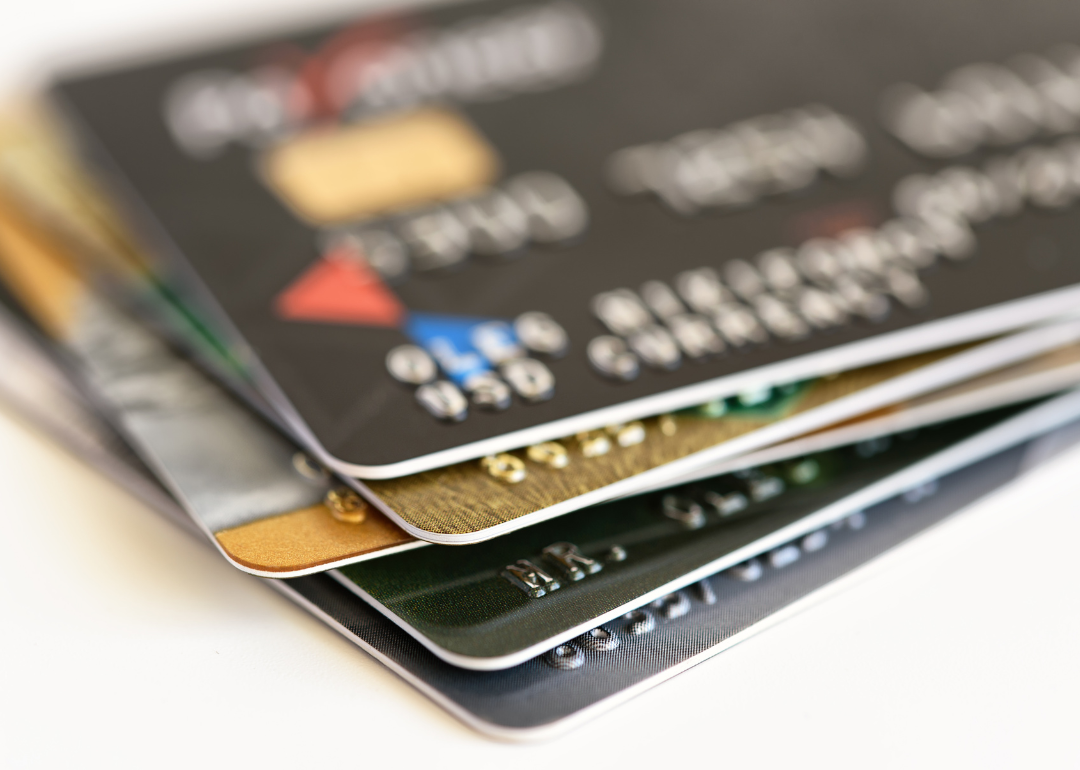
5 early warning signs of fraud on your account, according to banking experts
5 early warning signs of fraud on your account, according to banking experts
It's no secret that fraud is on the rise between investing schemes and elaborate banking scams as criminals become more sophisticated.
According to Truecaller, Americans lost almost $40 billion to phone scams alone in 2022. It's more important than ever that you monitor all of your banking accounts to ensure that they don't get compromised.
In this article, GOBankingRates reviews the early warning signs that someone is committing fraud or attempting to commit fraud on your accounts, so you know what to watch out for.
Unrecognized purchases
According to Jay Zigmont, Ph.D., CFP, founder and CEO of Childfree Wealth, one of the first signs of fraud is a trial purchase or some small transaction.
"It may just be for a dollar or less, but what fraudsters do is check to see if they have your information right," warned Zigmont. "Next, they may move up to a $20-50 dollar purchase to see if it is flagged."
If you notice any unrecognized purchases, it's likely a sign that someone's trying to commit fraud on your account.
"Fraudsters often make a small transaction first, so it falls under the radar in terms of affecting your balance," said Alisdair Faulkner, co-founder and CEO of financial fraud prevention startup, Darwinium.
The scammer's goal is to ensure they can get away with taking money from your banking account or using your credit card without you noticing.
How can you prevent this fraud?
The best tactic is to regularly review your accounts to spot any purchases that don't make sense.
"The earlier you alert your bank, the better off you will be," said Zigmont. "Your debit and credit cards have some fraud protection, but you also have a responsibility to notice and report fraud."
Faulkner agreed, saying, "If you're alerted to it and report the unrecognized purchase immediately, it will prevent the fraudster from going on to make a subsequent larger transaction."
The sooner you spot an issue, the higher the chances are that you'll prevent fraud on your accounts.
Contact from a random number claiming to be your bank
Faulkner said to be suspicious of any phone call or text that claims to be your bank. These institutions won't message you out of the blue to request information."No bank will ask you to move money immediately or call you out of the blue asking you to make sudden actions," added Faulkner.
How can you prevent this fraud?
Faulker suggested, "If you receive these kinds of calls — hang up and call the bank back on a confirmed public number (e.g. their website). You will never be asked to reveal personal information or passwords via email — just delete them — and be extra cautious even when on the phone."
Password reset information or authentication codes you didn't request
Rebecca Alter, trust and safety architect at Sift, recommends paying attention to password resets and authentication code requests.
"If you didn't request [them], someone else did, and if you don't know who requested it, it likely came from a fraudster," warned Alter.
Any email or contact you get about resetting your password is an early sign that someone is attempting some kind of fraud on your account. They're likely trying to get the password to get in and move the funds around.
How can you prevent this fraud?
Your best bet in this scenario is to ignore the message by not clicking on any links. Then you should immediately contact the bank or credit card to inform them of what happened.
It's also important to set up multi-factor authentication (MFA) on all your accounts so it's harder to break in.
New location or devices on your accounts
Alter continued, "Just like password reset requests, if you did not access your bank account from a new device or try to connect it to another service (like a financial planning app), there's a good chance its fraud."
Your accounts will likely notify you when there's access from a new location, which is often an early sign of fraud.
How can you prevent this fraud?
"Fraudsters often have access to how often a consumer interacts with the bank and, therefore, target accounts that are not actively used," stated Alter.
This means that you have to turn on security features with all of your accounts, even the ones that you don't use often, to be informed of any suspicious access.
Requests to update your banking information
According to Alter, any informal requests to update your banking information should also be considered an early warning sign.
Any time you receive contact about making an update out of nowhere, it's a sign that a scammer is trying to get into your account. That simple text about changing your address or some minor detail could be a step in some cyber fraud.
How can you prevent this fraud?
Remember, large financial institutions won't message you out of nowhere to request sensitive information over a text message, nor will they ask you to transfer your own funds.
"Keep a close eye on your spending history and flag any unrecognized transactions," added Faulkner. "The majority of banks allow you to set up phone alerts for activity on your account."
Closing thoughts
Zigmont said the key to spotting fraud is keeping a close eye on your accounts and credit report.
Faulkner agrees: "Pause, think, and, make sure the message makes sense. If it feels even slightly suspicious, it probably is."
This story was produced by GOBankingRates and reviewed and distributed by Stacker Media.



